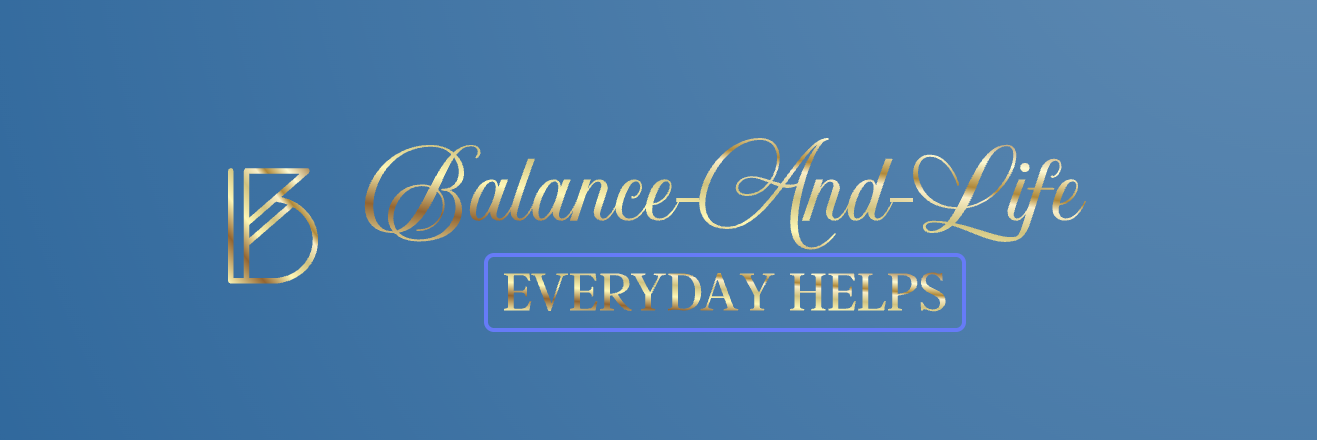In our increasingly demanding world, achieving mental clarity feels like an uphill battle. Brain fog, scattered thoughts, and difficulty concentrating have become common complaints among professionals, parents, and students alike. However, developing the right daily habits for mental clarity can dramatically transform your cognitive performance and overall quality of life.
Mental clarity represents more than just clear thinking; it encompasses your ability to process information efficiently, make sound decisions, and maintain sustained focus throughout your day. When you establish consistent mental clarity techniques, you create a foundation for enhanced productivity, reduced stress, and improved emotional well-being.
Understanding the Science Behind Mental Clarity
Your brain operates like a sophisticated computer that requires proper maintenance to function optimally. Neuroscientific research demonstrates that specific focus improvement strategies can literally rewire your neural pathways, creating stronger connections that support cognitive clarity. These cognitive enhancement habits work by reducing mental clutter, improving neural communication, and optimizing brain chemistry.
The prefrontal cortex, responsible for executive functions like planning and decision-making, thrives on routine and consistency. When you implement structured brain health routines, you’re essentially providing your brain with the predictable environment it needs to perform at peak capacity.
Harvard Health (Neuroplasticity Research)
Morning Rituals That Sharpen Your Mind
Start with Mindful Awakening
The first few minutes after waking set the tone for your entire day. Instead of immediately reaching for your phone, practice mindful awakening. Spend five minutes taking deep, intentional breaths while setting clear intentions for your day. This simple practice activates your parasympathetic nervous system, creating the calm alertness necessary for sustained mental clarity.

Hydrate Your Brain
Dehydration significantly impacts cognitive function, with even mild fluid loss causing concentration difficulties and mental fatigue. Begin each morning with 16-20 ounces of water to jumpstart your brain’s hydration process. Add a pinch of sea salt or a slice of lemon to enhance electrolyte absorption and support optimal neural communication.
Practice Cognitive Priming
Spend 10-15 minutes engaging in activities that challenge your brain. This might include solving puzzles, reading complex material, or practicing memory exercises. Cognitive priming prepares your mind for the day’s mental demands while strengthening neural pathways associated with focus and problem-solving.
Nutritional Strategies for Cognitive Enhancement
Fuel Your Brain with the Right Foods
Your brain consumes approximately 20% of your daily caloric intake, making nutrition crucial for mental performance. Focus on foods rich in omega-3 fatty acids, antioxidants, and B-vitamins. Incorporate blueberries, fatty fish, nuts, and leafy greens into your daily meals to support neurotransmitter production and protect against cognitive decline.
Time Your Meals Strategically
Blood sugar fluctuations directly impact your ability to concentrate and think clearly. Maintain stable glucose levels by eating balanced meals every 3-4 hours. Include protein, healthy fats, and complex carbohydrates in each meal to provide sustained energy for your brain throughout the day.
Physical Practices That Boost Mental Performance
Movement as Medicine for the Mind

Regular physical activity increases brain-derived neurotrophic factor (BDNF), a protein that promotes the growth of new neurons and protects existing brain cells. Even 20 minutes of moderate exercise can improve cognitive function for up to 12 hours. Choose activities you enjoy, whether it’s walking, dancing, or yoga, to ensure consistency.
Exercise: 7 benefits of regular physical activity
Master Your Sleep Architecture
Quality sleep serves as your brain’s reset button, clearing metabolic waste and consolidating memories. Establish a consistent sleep schedule, aiming for 7-9 hours nightly. Create an optimal sleep environment by keeping your bedroom cool, dark, and quiet. Avoid screens for at least one hour before bedtime to support natural melatonin production.
Environmental Optimization for Peak Focus
Design Your Physical Space
Your environment significantly influences your mental state. Organize your workspace to minimize visual distractions and create clear boundaries between work and relaxation areas. Incorporate natural elements like plants or natural light to reduce stress and enhance cognitive performance.
Read more: 7 Daily Habits for Mental Clarity That Transform Your MindToddler Safety: Essential Tips to Keep Your Child Safe and Secure

Implement Digital Boundaries
Constant notifications and digital interruptions fragment your attention, making sustained focus nearly impossible. Establish specific times for checking emails and social media. Use website blockers during focused work periods and keep your phone in another room when possible.
Advanced Techniques for Sustained Mental Clarity
Practice Single-Tasking
Multitasking is a myth that actually decreases productivity and mental clarity. Train yourself to focus on one task at a time, giving it your complete attention before moving to the next. This approach improves work quality while reducing mental fatigue.
Develop Metacognitive Awareness
Pay attention to your thinking patterns and mental state throughout the day. Notice when your focus begins to wane and identify triggers that cause mental fog. This self-awareness allows you to make real-time adjustments to maintain optimal cognitive performance.
Incorporate Stress-Reduction Practices
Chronic stress floods your brain with cortisol, impairing memory formation and cognitive flexibility. Regular meditation, deep breathing exercises, or progressive muscle relaxation can significantly reduce stress levels and improve mental clarity.
The Power of Taking Breaks in Your Daily Habits for Mental Clarity
In our achievement-oriented culture, taking breaks often feels counterproductive or even lazy. However, incorporating strategic breaks into your daily habits for mental clarity represents one of the most scientifically-backed methods for enhancing cognitive performance, creativity, and sustained focus. Understanding how and when to take breaks can transform your mental clarity from sporadic moments of sharpness into a consistent, reliable cognitive resource.
The human brain wasn’t designed for prolonged periods of intense focus. Neuroscientific research reveals that our attention operates in natural cycles, with peak concentration typically lasting 90-120 minutes before cognitive fatigue sets in. When you push beyond these natural rhythms without incorporating breaks into your daily habits for mental clarity, you experience diminishing returns that ultimately sabotage your productivity and mental performance.
The Science Behind Strategic Breaks and Mental Clarity
When you take appropriate breaks, several crucial neurological processes occur that directly support your daily habits for mental clarity. First, your brain’s default mode network becomes active, facilitating memory consolidation and creative problem-solving. This network operates like a background processor, organizing information and making novel connections that often lead to breakthrough insights and improved understanding.
Additionally, breaks allow your prefrontal cortex, the brain region responsible for executive functions like decision-making and attention control, to recover from the metabolic demands of sustained focus. During intense mental work, this area consumes glucose at an accelerated rate, leading to decision fatigue and reduced cognitive control. Strategic breaks replenish these energy stores, restoring your capacity for clear thinking and sound judgment.
The glymphatic system, your brain’s waste clearance mechanism, also becomes more active during rest periods. This system removes cellular debris and toxins that accumulate during mental exertion, literally clearing your mind for improved performance. When breaks become a consistent part of your daily habits for mental clarity, you’re supporting this natural detoxification process that keeps your brain functioning optimally.
Types of Breaks That Enhance Daily Habits for Mental Clarity
Not all breaks are created equal when it comes to supporting mental clarity. The most effective breaks for your daily habits for mental clarity involve activities that genuinely allow your mind to rest and reset rather than simply switching to different demanding tasks.
Micro-breaks lasting 30 seconds to 2 minutes can provide immediate relief during intense work sessions. These might include deep breathing exercises, brief stretching, or simply closing your eyes and allowing your mind to wander. Research shows that even these brief pauses can significantly improve sustained attention and reduce mental fatigue when practiced consistently throughout the day.
Movement breaks lasting 5-15 minutes offer more substantial cognitive benefits. Walking, especially outdoors, has been shown to boost creative thinking by up to 60% compared to sedentary activities. The combination of physical movement, environmental stimulation, and mental rest creates ideal conditions for cognitive restoration and enhanced problem-solving abilities.
Nature breaks provide particularly powerful support for your daily habits for mental clarity. Exposure to natural environments triggers the relaxation response, reduces cortisol levels, and improves attention restoration more effectively than urban environments. Even viewing nature scenes through a window or looking at nature photography can provide measurable cognitive benefits.
Mindfulness breaks involve deliberately focusing attention on the present moment through meditation, body awareness, or mindful breathing. These practices strengthen the neural networks associated with attention control while simultaneously providing mental rest. Regular mindfulness breaks as part of your daily habits for mental clarity build long-term resilience against stress and cognitive fatigue.
Strategic Timing for Maximum Mental Clarity Benefits
The timing of breaks significantly influences their effectiveness in supporting your daily habits for mental clarity. Working in focused sprints of 45-90 minutes followed by 15-20 minute breaks aligns with your brain’s natural attention cycles, maximizing both productivity and recovery.
Pay attention to your personal energy rhythms when scheduling breaks. Most people experience natural dips in alertness around 2-3 PM, making this an ideal time for a longer restorative break. Similarly, taking breaks before you feel completely exhausted prevents the deep fatigue that requires longer recovery periods.
Preventive breaks, taken before cognitive fatigue sets in, prove more effective than reactive breaks taken after mental exhaustion occurs. This proactive approach to break-taking maintains consistent mental clarity throughout the day rather than allowing performance to decline before attempting recovery.
Overcoming Break Resistance in Your Daily Habits for Mental Clarity
Many high achievers resist taking breaks due to concerns about lost productivity or social pressure to appear constantly busy. However, research consistently demonstrates that strategic breaks actually increase overall output while improving work quality and creative problem-solving abilities.
Start by reframing breaks as investments in your cognitive performance rather than time away from work. Track your mental clarity and productivity levels with and without regular breaks to observe the tangible benefits firsthand. Most people discover that incorporating breaks into their daily habits for mental clarity actually increases their accomplishments while reducing stress and mental fatigue.
Set boundaries around break time by treating these periods as non-negotiable appointments with your cognitive health. Use reminders or apps to prompt regular breaks until the habit becomes automatic. Remember that consistency in taking breaks matters more than the perfect type or duration of break.
The integration of strategic breaks into your daily habits for mental clarity represents a paradigm shift from viewing rest as the absence of productivity to understanding it as an essential component of peak performance. When you honor your brain’s natural need for recovery and restoration, you create the foundation for sustained mental clarity that serves you throughout your entire day and enhances every aspect of your cognitive abilities.
Building Long-Term Daily Habits for Mental Clarity and Cognitive Resilience
Consistency remains the key to transforming these practices into automatic daily habits for mental clarity. Start by implementing one or two techniques and gradually add others as they become natural parts of your routine. Track your progress using a simple journal or app to maintain motivation and identify which strategies work best for you.
Remember that building mental clarity is a gradual process that requires patience and persistence. Small, consistent actions compound over time to create significant improvements in your cognitive performance and overall well-being. These daily habits for mental clarity become the foundation for long-term brain health and enhanced life quality.
The journey toward enhanced mental clarity begins with a single decision to prioritize your cognitive health. By implementing these evidence-based daily habits for mental clarity, you’re investing in your brain’s long-term performance and your overall quality of life. Remember that developing daily habits for mental clarity requires consistency and patience, but the rewards of improved focus, reduced brain fog, and enhanced cognitive performance make this investment worthwhile.
7 Silent Choking in Babies Signs Every Parent Must Know
Read more: 7 Daily Habits for Mental Clarity That Transform Your MindLooking for comprehensive guidance on caring for your baby? Our book ‘How to Care for Children: From Birth to Age 2’ combines professional nanny experience with evidence based child development research. Written by Kelly and Peter, this guide provides clear, reliable advice rooted in real world childcare. Available in English, Spanish, and Portuguese on Amazon.
Click the link below your preferred language to get your copy!

1. How long does it take to see results from daily habits for mental clarity?
Most people notice initial improvements in focus and mental energy within 1-2 weeks of consistent practice. However, significant changes in cognitive performance typically develop over 4-6 weeks as new neural pathways strengthen and habits become automatic.
2. What is the most important daily habit for mental clarity if I can only do one thing?
If you can only implement one habit, prioritize getting 7-9 hours of quality sleep consistently. Sleep serves as your brain’s reset button and foundation for all other cognitive functions. Without adequate sleep, other mental clarity techniques become far less effective.
3. Can daily habits for mental clarity help with brain fog caused by stress?
Yes, stress-induced brain fog responds particularly well to daily mental clarity habits. Practices like meditation, regular exercise, proper hydration, and stress management techniques can significantly reduce cortisol levels and improve cognitive function within weeks.
4. Do I need to follow all these daily habits for mental clarity, or can I pick and choose?
Start with 2-3 habits that feel most manageable for your lifestyle, then gradually add others as these become routine. The key is consistency with fewer habits rather than attempting everything at once and becoming overwhelmed.
5. Are there any daily habits for mental clarity that work specifically for busy professionals?
Busy professionals benefit most from micro-habits like 5-minute morning meditations, staying hydrated throughout the day, taking brief walking breaks every hour, and practicing single-tasking during important work sessions. These require minimal time but provide maximum cognitive impact.
Watch this video for more insights:
Want a complete baby care guide?
Get our FREE checklist sent directly to your inbox - covering everything from birth to age 2, including daily routines, safety guidelines, and developmental milestones.
- ✅ Birth to 3 months essentials
- ✅ 4-12 months routines & alerts
- ✅ 1-2 years development & safety
Enter your email to receive instant access to the PDF





Nada melhor que ativar nosso cérebro, a prática de exercícios e a terapia realmente tem ajudado muito na qualidade de vida das pessoas.
Muito Obrigada!